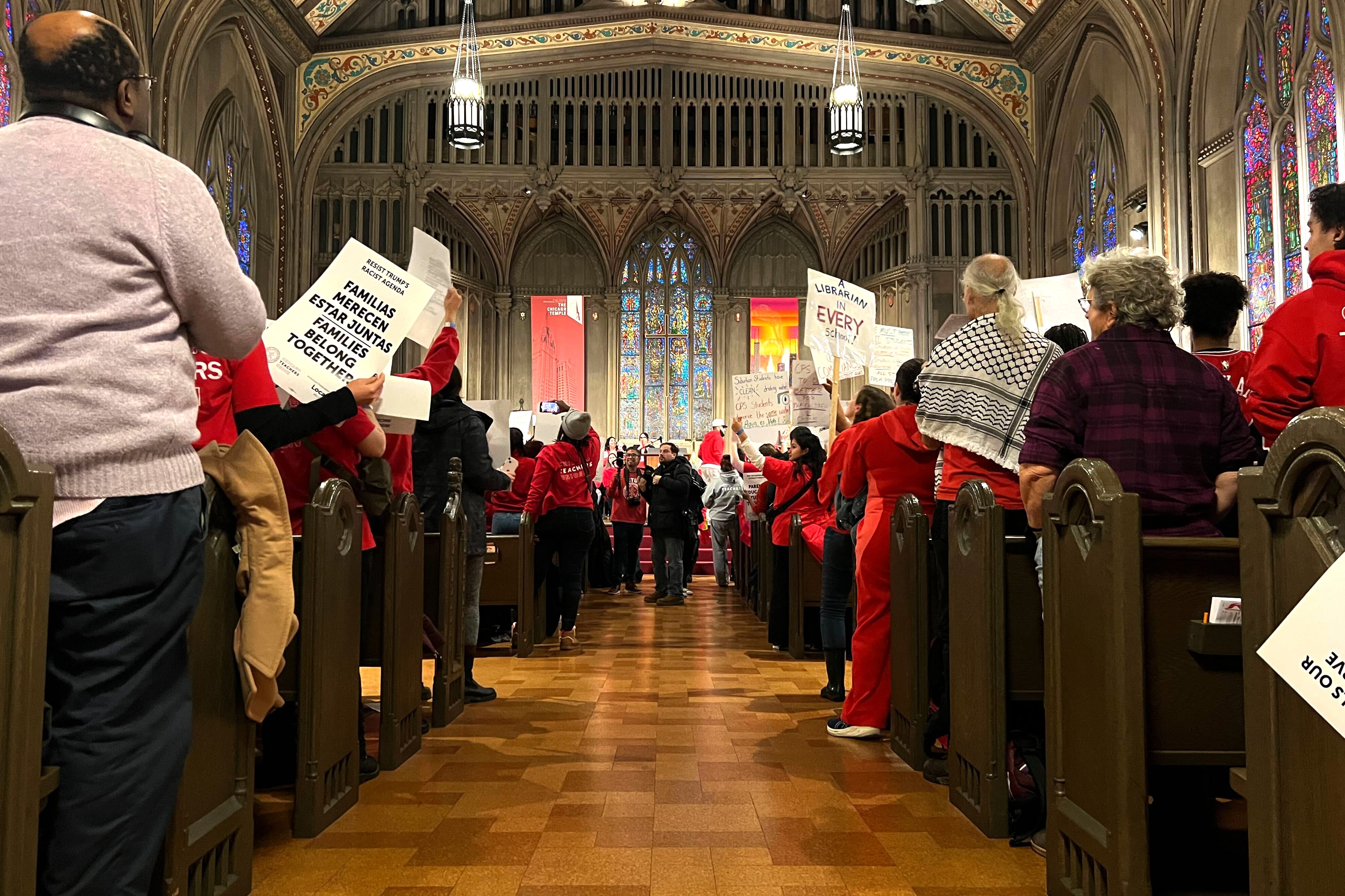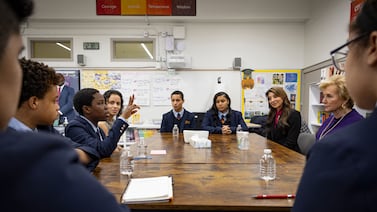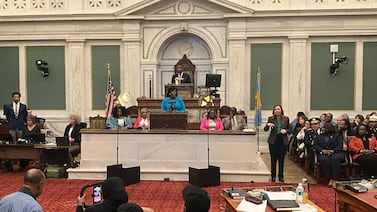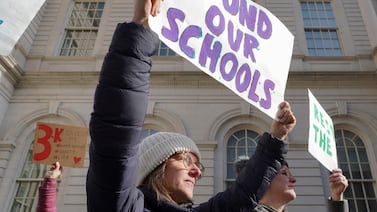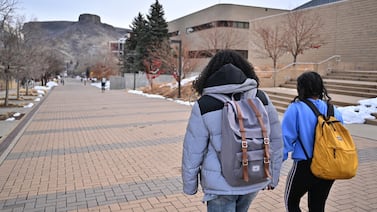Sign up for Chalkbeat Chicago’s free daily newsletter to keep up with the latest news on Chicago Public Schools.
A third-party labor arbitrator is hearing arguments from Chicago Public Schools and the Chicago Teachers Union Wednesday and Friday in an effort to reach an agreement on a new contract.
This fact-finding process involving an arbitrator has been used three times since it was established in state law in 2010. Twice, teachers still ended up going on strike. Under the timeline required by the law, the soonest a strike could now occur would be mid-April.
Once arbitrator Martin Malin reviews materials from CPS and CTU and issues his recommendations, which are nonbinding, both could accept his recommendations or either of them can reject the proposal. If one party rejects them, Malin’s report will be made public and after 30 days, the union can issue a 10-day strike notice.
The teachers’ contract expired last June. While the two sides have tentatively agreed to a host of issues, such as additional social workers and class size limits, key sticking points remain. The negotiations have taken place amid some of the most volatile moments for CPS leadership in the district’s history.
The slow pace of negotiations at the start of the school year picked up after the union requested fact-finding last October. The two agreed to instead keep working to get a deal done without the help of an arbitrator.
CTU President Stacy Davis Gates said talks then slowed to a halt in late December after the school board appointed by Mayor Brandon Johnson took a dramatic vote to fire CPS CEO Pedro Martinez, who then filed a lawsuit requesting an injunction. A judge ruled that Martinez— who will remain on the job until June — is in charge of the contract negotiations, and that school board members cannot attend talks without his permission.
CPS officials disputed Gates’ comments. They said negotiations continue to progress, including over the past month, and that they “will continue to meet our labor partners at the negotiations table and bargain in good faith.”
But on Wednesday, Davis Gates expressed dissatisfaction with entering fact-finding and said starting this process shifts “what we talk about in bargaining only to finances, not what children need.”
Nevertheless, the union’s legal team filed an 80-page pre-hearing brief with Malin on Monday and outlined what they want him to consider when making his recommendations.
In a statement, the school district characterized its approach to bargaining as “fully student-centered” and aimed at preserving and building on “robust programs that have supported CPS’ impressive academic recovery from the COVID-19 pandemic.”
The district hired more than 7,000 additional staff using federal COVID relief money over the past four years, and there’s evidence that CPS students benefited from the district’s approach to using the aid with respect to reading. District officials have said they are committed to maintaining those positions even though the federal dollars are now gone.
CPS released its own pre-hearing brief asking Malin to consider the district’s financial position, current salaries and benefits, and its position on teacher prep time and evaluation procedures. The district continues to post additional updates about labor talks on its website.
Thad Goodchild, the CTU’s deputy general counsel, said Malin is expected to issue his recommendations for a settlement by mid-February.
Becky Vevea is the bureau chief for Chalkbeat Chicago. Contact Becky at bvevea@chalkbeat.org.

